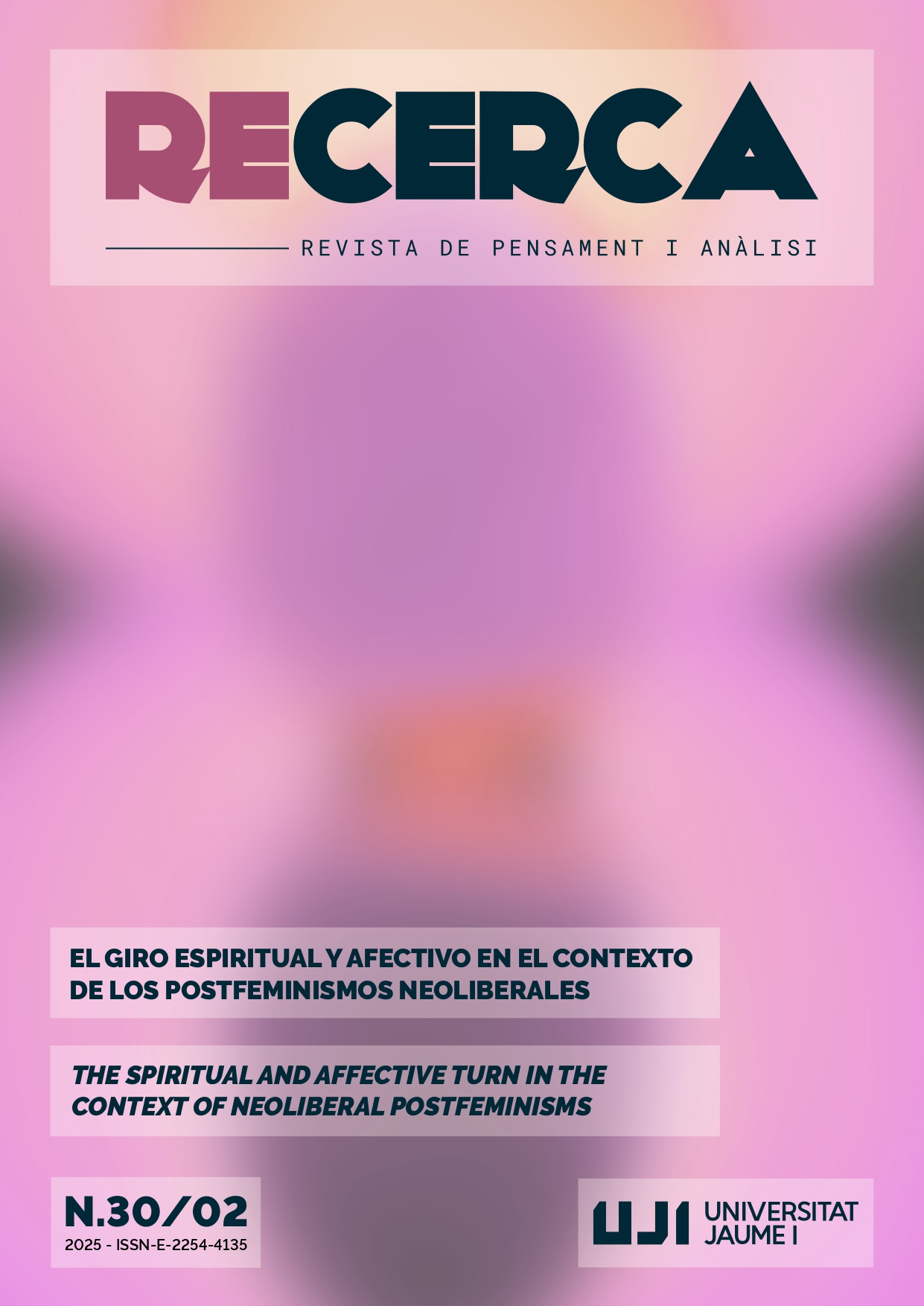Hermeneutic Justice as Linguistic Activism
Main Article Content
Abstract
This paper proposes to reconceptualize hermeneutic justice from the perspective of linguistic activism, engaging critically with Miranda Fricker’s proposal to create more inclusive communicative spaces and cultivate virtuous listening. It argues that linguistic activism, understood as the work of social movements to transform concepts and narratives, allows marginalized groups to resist communicative impasses and conceptual failures and transform meanings and social practices. Through an analysis of the conceptual and narrative dimensions of linguistic activism, the article argues that hermeneutic justice as linguistic activism is more suitable for understanding the complex possibility of social change than an approach focused on listening as an individual virtue.
Downloads
Article Details
References
Acosta López, María del Rosario (2025). Gramáticas de la escucha. Hacia una memoria de lo inaudito. Barcelona: Herder.
Anderson, Elizabeth (2012). Epistemic Justice as a Virtue of Social Institutions. Social Epistemology, 26(2),163-73.
Anderson, Luvell (2017). Hermeneutical Impasses. Philosophical Topics, 1-19.
Ayala-López, Saray (2022). Hermeneutical Injustice and Conceptual Landscaping: The Benefits and Responsibilities of Expanding Conceptual Landscaping beyond Failure Reparation. En Bordonaba Plou, David, Fernández Castro, Víctor y Torices, José Ramón (Eds.). The Political Turn in Analytic Philosophy. Reflections on Social Injustice and Oppression (211-228). Berlin/Boston: De Gruyter.
Bordonaba Plou, David, Fernández Castro, Víctor y Torices, José Ramón (Eds.) (2022). The Political Turn in Analytic Philosophy. Reflections on Social Injustice and Oppression. Berlin/Boston: De Gruyter.
Cantalamessa, Elizabeth Amber (2021). Disability studies, conceptual engineering, and conceptual activism. Inquiry, 64(12), 46-75.
Dotson, Kristie (2011). Tracking Epistemic Violence. Tracking Practices of Silencing. Hypatia, 6(2), 236-57.
Dotson, Kristie y Ezgi Sertler (2021). When Freeing Your Mind Isn’t Enough. En Lackey, Jennifer (Ed.). Applied Epistemology (19-36). Oxford: Oxford University Press.
Eklund, Matti (2021). Conceptual Engineering in Philosophy. En Khoo, Justin y Sterken, Rachel Katharine (Eds.). The Routledge Handbook of Social and Political Philosophy of Language. (1530). Nueva York/Londres: Routledge.
Eraña, Ángeles (2025). La escucha: una herramienta para combatir la injusticia hermenéutica. Tópicos. Revista de filosofía, 71, 1147.
Falbo, Arianna (2022). Hermeneutical Injustice: Distortion and Conceptual Aptness. Hypatia, 343-63.
Fricker, Miranda (2007). Epistemic Injustice: Power and Ethics of Knowing. Nueva York: Oxford University Press.
Fricker, Miranda (2016). Epistemic Injustice and the Preservation of Ignorance. En Peels, Rik y Blaauw, Martijn (Eds.). The Epistemic Dimensions of Ignorance (160-167). Cambridge: Cambridge University Press.
Fricker, Miranda (2017). Injusticia epistémica. Barcelona: Herder.
Giddens, Anthony (2012). Sociología. Madrid: Alianza Editorial.
Giromini, José Gabriel y Vilatta, Emilia (2022). Conceptos sociales, etiquetas y cambio conceptual: un enfoque semántico de la injusticia hermenéutica. Estudios de Filosofía, 66, 33-55.
Goetze, Tristan (2018). Hermeneutical Dissent and the Species of Hermeneutical Injustice. Hypathia, 33(1), 73-90.
Haslanger, Sally (2012). Resisting Reality: Social Construction and Social Critique. Oxford: Oxford University Press.
Haslanger, Sally (2017). Racism, Ideology, and Social Movements. Res Philosophica, 94(1), 1-22.
Haslanger, Sally (2019). Cognition as a Social Skill. Australasian Philosophical Review, 3(1), 5-25.
Haslanger, Sally (2021a). How to Change a Social Structure. Recuperado de: https://www.ucl.ac.uk/laws/sites/laws/files/haslanger_how_to_change_a_social_structure_ucl.pdf [Consultado en 05/2025].
Haslanger, Sally (2021b). Political Epistemology and Social Critique. En Sobel, Vallentyne, y Wall (Eds). Oxford Studies in Political Philosophy. Vol. 7, (23-65). Oxford: Oxford University Press.
Haslanger, Sally y Claire Chambers (2017). Ideology and Critique. The Aristotelian Society, XCI, 149-73.
Jenkins, Katherine (2016). Rape Myths and Domestic Abuse Myths as Hermeneutical Injustices. Journal of Applied Philosophy, 34(2),191-205.
Las Tesis (Dir.) (2019). Un violador en tu camino. Santiago de Chile.
Lindemann Nelson, Hilde (2001). Damaged Identities, Narrative Repair. Ithaca, London: Cornell University Press.
MacKinnon, Catharine A. (1993). Reflections on Law in the Everyday Life of Women. En Sarat, Austin y Kearns, Thomas R. (Eds.). Law in Everday Life (109-122). University of Michigan Press.
Mason, Rebeca (2021). Hermeneutical Injustice. En Khoo, Justin y Sterken, Rachel Katharine (Eds.). The Routledge Handbook of Social and Political Philosophy of Language (247-258). Nueva York/Londres: Routledge.
Medina, José (2011). The Relevance of Credibility Excess in a Proportional View of Epistemic Injustice: Differential Epistemic Authority and the Social Imaginary. Social Epistemology, 15-35.
Medina, José (2013). The Epistemology of Resistance. Gender and Racial Oppression, Epistemic Injustice, and Resistant Imaginations. Oxford: Oxford University Press.
Medina, José (2017). Varieties of Hermeneutical Injustice. En Kidd, Ian James, Medina, José y Pohlhaus, Gaile (Eds.). The Routledge Handbook of Epistemic Injustice (41-52). Nueva York: Routledge.
Medina, José (2019). Racial violence, emotional friction and epistemic activism. Angelaki, 24(4), 22-37.
Medina, José (2021). Injusticia epistémica y activismo epistémico en las protestas sociales feministas. Revista Latinoaméricana de Filosofía Política, X(8), 227-50.
Medina, José (2023). The Epistemology of Protest. Silencing, Epistemic Activism, and the Communicative Life of Resistance. Oxford: Oxford University Press.
Medina, José y Tempest Henning (2021). My Body as a Witness. En Lackey, Jennifer (Ed.). Applied Epistemology (171-90). Nueva York: Oxford University Press.
Moody-Adams, Michelle (2022). Making Space for Justice. Social Movements, Collective Imagination, and Political Hope. Nueva York: Columbia University Press.
Mühlebach, Deborah (2022). Tackling Verbal Derogation: Linguistic Meaning, Social Meaning and Constructive Contestation. En Bordonaba Plou, David, Fernández Castro, Víctor y Torices, José Ramón (Eds.). The Political Turn in Analytic Philosophy (175-98). Berlín/Boston: De Gruyter.
Murguia, Adriana (2016). Injusticias epistémicas y teoría social. Dilemata, 1-19.
Pohlhaus, Gaile (2012). Relational Knowing and Epistemic Injustice: Toward a Theory of Willful Hermeneutical Ignorance. Hypatia, 27(4),715-35.
Simion, Mona (2019). Hermeneutical Injustice as Basing Failure. En Bondy, Patrick y Carter, J. Adam (Eds.). Well Founded Belief: New Essays on the Epistemic Basing Relation (177-189). London: Routledge.
Truth, Sojourner (2020). Ain’t I a Woman? Londres: Penguin.
Wendell, Susan (2023). La construcción social de la discapacidad. En Ruíz Bravo, Patricia y Pizarro, Aranxa (Eds). Pensando el género. Lecturas contemporáneas (212-148). Lima: PUCP/UNESCO.
Young, Iris Marion (2002). Inclusion and Democracy. Oxford: Oxford University Press.


